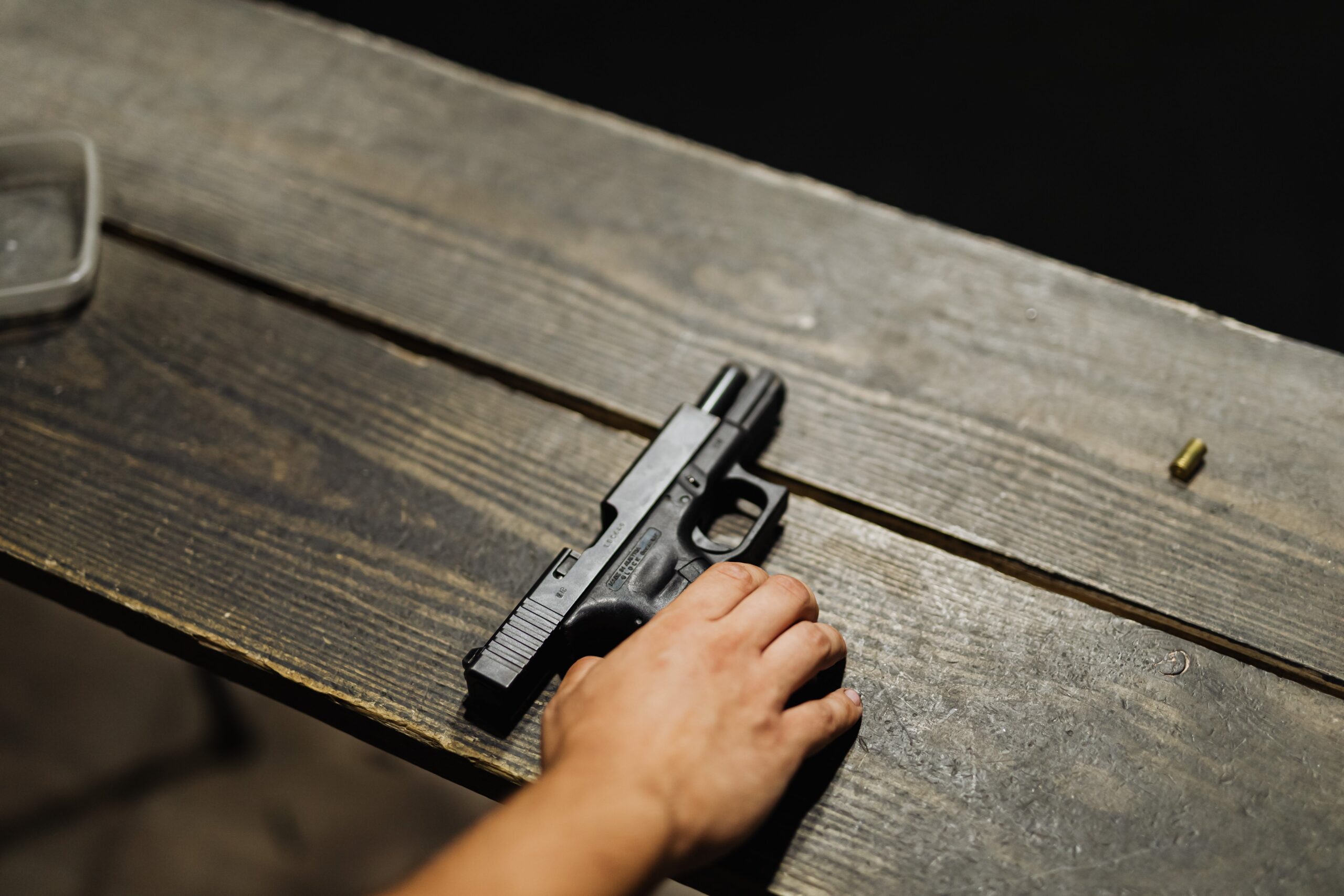Tens of thousands of applications for a license to carry a private firearm were filed with the Ministry for National Security in the past two weeks, among them from those newly eligible by the recently expanded regulations. As of today, the licensing criteria to apply for a firearm license can be divided into three main categories:
- Geography- people facing an increased risk of encountering hostiles: eligible places of residence and farmers.
- Responsibility – people whose discretion in the field is trusted: MDA volunteers, firefighters.
- Training – people with operational capability: combatant soldiers, firearms instructors.
Who isn’t eligible to carry a firearm? In general, any person who did not serve in the army as a combatant and/or does not reside in an eligible place of residence is not eligible for a license. Considering that most of the eligible are those who are called up to serve on the front lines, the home front – turned – battlefield is rendered incapable of self-defense. This is also the right moment to raise the question of why, for instance, female infantry instructors, who train combatant soldiers in target shooting, firearm usage and weapon safety are not eligible to be included in the licensing criteria, while women who served in the National Service but live in eligible places of residence are. The Firearm Licensing Department’s rationale is understandable – not to overly expand the licensing criteria – however, a state of war, coupled with the lessons learned from the military operation ‘Guardian of the Walls’ (“Shomer Ha’Homot”) call for a different approach to the issue of firearm licensing.
One option is to expand the licensing criteria to all forms of army service to include those who served in non-combatant positions, subject to designated and tailored training. Alternatively, additional cities can be added to the eligible places of residence list without adding licensing criteria. This list is confidential but flexible, and can be expanded or contracted at the discretion of police and security personnel, which allows for more protection for citizens without fear of dramatic change that may have future repercussions.
Last week Sderot was reportedly added to the eligible cities list, but that is insufficient. Citizens from Kfar Saba and other towns and kibbutzim that border the Green Line can testify to being no less vulnerable to future terror risks than the citizens of the Gaza Envelope. Only some of Jerusalem’s neighborhoods grant eligibility – and that doesn’t include even some of the borderline neighborhoods. Past experience demonstrates that the threat is not as geographically circumscribed as was perhaps previously thought. The question of which places of residence should be eligible needs to be re-evaluated and the current map of risks and threats reassessed. Such reassessment must take into consideration the disillusionment with the fear of granting mixed residences eligibility and the understanding that those who desire to obtain a firearm to harm Jews do not need a police license – a large market of illegal weapons is at their disposal. Reality has further debunked the repeated claims by organizations such as “Gun Free Kitchen Tables” (a disarmament and gun control project); the concept of the “right to bear arms” is simply not the issue but rather the duty of every person to exercise self-defense, and to protect their family and community.
Indeed, on the 7th of October new data was made relevant. We should pay attention not only to the miniscule number of licensed firearms that were used against female partners but to the enormous number of times men heroically saved their partners’ and daughters’ lives, in addition to all other cases in which private firearms saved lives and terminated hostile attacks. It is time to change the current conception of firearm licensing and demand that security forces and decision makers take action to strengthen the home front as well as the front lines. As MK Simcha Rothman said to the representatives of the Firearm Licensing Department at the National Security committee, the burden of proof lies not on those who wish to allow more citizens to carry a firearm for self-defense, but upon those who seek to deny them.
First published in Hebrew in Makor Rishon




